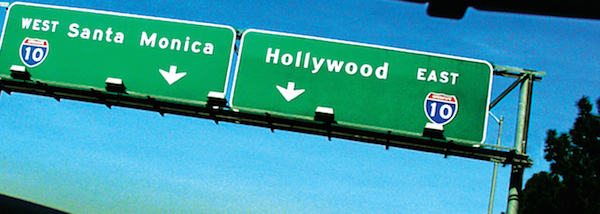How to Work the American Film Market

Next week the American Film Market (AFM) begins in Santa Monica, California, running from November 5 – 12. AFM is one of the four largest film markets held annually around the world. The others are the European Film Market (EFM), held simultaneously with the Berlin International Film Festival; the Hong Kong International Film & TV Market and the Marché du Film, which takes place alongside Cannes.
While some markets are linked to film festivals, they are not the same thing. Film markets are trade shows, organized for distribution companies to present their properties to film buyers from markets around the globe. The markets are about making a deal with buyers, not generating buzz in the press, so you won’t see any star-studded red carpet screening events. What you will find are some of the hardest-working sales teams in the business who have truly refined the art of the pitch.
Jonathan Wolf, Executive Vice President of the Independent Film & Television Alliance (IFTA) and Managing Director of AFM, recently gave a presentation at Film Independent offering advice on how to work the American Film Market, giving tips on who should attend and what to bring to the marketplace.
Who should attend AFM?
Producers who are expert salesmen, know who the players are at the studios, understand financial incentives and can identify the elements within their film that will appeal to their target audience definitely need to be there. It’s also the perfect place for writers who are pitching scripts and looking for a producer to partner with on their projects.
What do you need to do before you show up?
Look at the distribution companies and sales companies that are gong to be there to identify which ones would be best for your project. A list of exhibitors attending AFM can be found on the AFM website. Also look closely at the films themselves—the languages, genres and budgets that these companies distribute. Is your film a match? Look at the Film Catalogue on the AFM website, which lists most films being exhibited at the market.
You need to present yourself as a professional who is in the know, so figure out who the executives are at those companies that are a match, and reach out to them to make an appointment to meet during AFM. Tell them what you’ve got—realizing that you will hear “No” more than once. Finally, be sure to refine and perfect your pitch, because that’s what you will be doing over and over again.
What should you bring to AFM?
First things first: bring business cards—a lot of them. Also bring a one sheet for your film that summarizes the project. It should contain a two or three sentence synopsis that concisely and artfully encapsulates what your film is about, its production locations and main actors. (If the project has not yet been produced, then list the stars who are attached.) If you have a finished film, prepare a password-protected website with three to five minutes of complete scenes from your film. Choose clips that will best show your production value and the work of the actors and director. Do not bring scripts, and do not cut and present a consumer trailer. These companies are not interested in your ability to market your film; they want to get a sense of your film.
Who do you want to meet?
You are looking to meet a sales agent with market expertise who will be able to identify and advise you on how to get the most marketable value out of your film project. They understand which actors are valuable in which international markets, where the best production incentives can be found and how to make small adjustments to your project that will substantially increase its value around the globe.
Anthony Ferranti / Film Independent Blogger
